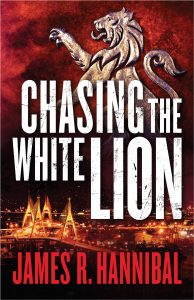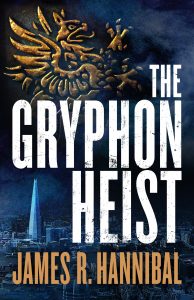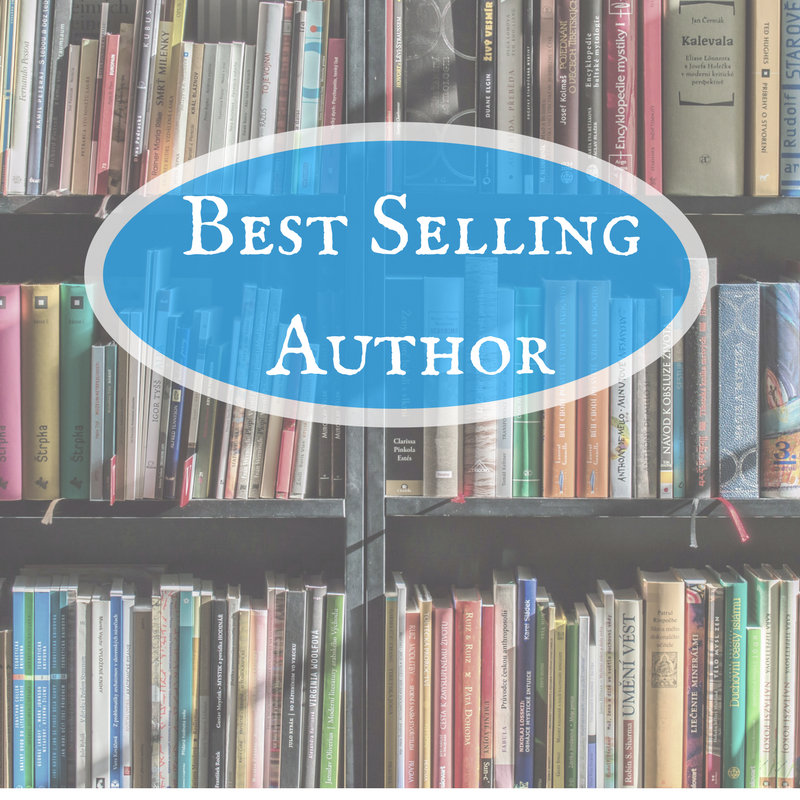Can you share a little about your recent book?
Chasing the White Lion is a mash-up of thieves and spies. This book is the second in a series described as “Ocean’s Eleven meets Mission Impossible.” Talia Inger is a rookie spy who must wrangle a pack of elite thieves as the team attempts to infiltrate the world first crowdsourced crime syndicate. Their objective? Save a group of kidnapped refugee children from human traffickers tied to the organization. While they’re at it, they might have a shot at toppling the organization and exposing a traitor in our very own CIA.

Why do you write? Do you have a theme, message, or goal for your books?
Choose your adventure! That’s my overall theme. I’ve applied it to life and writing. In the old days of the Bantam Choose Your Own Adventure series, I wanted so much more than “Turn left or right” or “Take the path or enter the cave.” I’d always been a storyteller, but that’s when I started creating stories in earnest, writing new paths and new endings in my head.
My most recent story has a much larger goal, though. Chasing the White Lion is the first spy thriller highlighting a real charitable organization. My goal with that story is to help spread the world about the work Compassion International is doing to fight child poverty and to support them with a portion of every book sold. I hope the story helps readers see how meeting those in need right where they are helps slam the door on human traffickers.
How long have you been writing?
I’ve been writing my whole life. I tried to write my first book at the age of 4 (a story about pandas playing soccer which was suspiciously similar to a recent library book about raccoons playing basketball). My first short story was read over the radio at age 12. At age 17, I entered the military, so all of that got put on hold for a while, but my time there filled up my bucket of experiences to aid my future stories.
And how long did it take you to get your first major book contract? Or are you published non-traditionally? How did that come about?
I began writing my first real novel in 2006. Once I completed it in 2008, I had to wait an additional nine weeks for the military to review it and make sure I didn’t expose classified information. I sent it out in late 2008, and a small publisher picked it up at the end of 2009. They turned out to be unscrupulous. Even so, the book managed to gain accolades from Publishers Weekly and Clive Cussler, which helped me land my first real contract in 2012. I was working on my fourth book when my second book was finally picked up, and I have 42 rejection letters in a file to remind me how hard I worked to get there.
Which of your books is your favorite?
We’re not supposed to have favorites, but usually mine is the book I’m working on at the time. However, if I was forced to choose, The Clockwork Dragon would be my current fantasy pick and Chasing the White Lion would be my thriller pick.
Do you have a favorite character or scene in one of your books?
Again, we’re not supposed to have favorites, but I do share a lot with Jack Buckles. When I sought to re-create the Sherlock Holmesian hyper-observant detective in a new way, my wife advised me to use my own synesthesia. This is a merger of the senses where both Jack and I see and feel sounds, hear and feel movement and flashes of light, see and feel smells, etc. Of course, we embellished it a little to help Jack see into the past through the history recorded in the molecular vibrations of stone, steel, and jewels (I can’t do that), but many of our experiences are the same—including using our synesthesia to catch bad guys.
How long does it take you to write a book?
Longer than my publishers would like. I spend the first several weeks developing the beats of the story and understanding the theme and characters. From this, I create a short story version of the book, anywhere from 20 to 40 pages. At this point, we might be at 6 weeks. From there, I go deep into writing and usually go in chronological order. Depending on the genre, a story can take anywhere from 6 to 9 months. After that, I like to spend another 4 weeks revising.
What’s your writing work schedule like?
Haphazard doesn’t even begin to cover it. I have two other jobs which both take up a great deal of time. I write when I can, stealing every moment possible.
Do you have an interesting writing quirk? If so, what is it?
I walk. I walk for twelve miles at a time on some days. This really fuels my creativity, and I’ll write multiple chapters by recording them on my phone via Dragon Dictation.
What has been your greatest joy(s) in your writing career?
Without a doubt, the greatest joys come from receiving fan messages telling me how a story has impacted their lives. In one case, I received word that a Compassion child who had read the Spanish edition of The Lost Property Office who found encouragement from the story and finally realized that he too was a synesthete. Understanding our neurological phenomenon at an early age can be life changing, and I know it will be for that boy. I’m grateful to Compassion for bringing my work to those kids and following up to show me its impact.
What has been your darkest moment(s)?
Beware. There are many dark moments in a writing career. I’ve lost two movie deals that could have ended my need for another job and let me focus entirely on writing, one thanks to financial shifts at Sony and the other due to political pressure from China (no kidding). I’ve seen more rejections and harsh words than I can count. And I’ve received multiple death threats. Thank God my wife is always there to remind me that He is in control.
How many times in your career have you experienced rejection? How did they shape you?
As I said before, I have 42 rejection letters in a file. And those are just the ones I remembered to save. Plus, most agents don’t bother to send rejection letters. Add to that rejections in Hollywood, angry reviewers, etc. Tallying them all up is impossible. If you want to work in this business, you’d better grow a thick skin fast.
Where do you get your ideas?
Ideas come from knowledge, experience, and inspiration. You can’t have the latter without the former two. So, fill up your knowledge and experience buckets in every way you can—reading, living, etc. That when, when the spark of inspiration comes, you’ll be ready.
Example: My biggest seller by far has been The Lost Property Office. Inspiration struck while I was in London, looking for 221B Baker St. The real Lost Property Office happens to be a few doors down at 200 Baker St. The world of secret societies that opened up for me on that day—The Ministries of Trackers, Guilds, Secrets, and Dragons—appeared only because of my previous study and experience. Without filling those buckets first, I’d have missed that chance.
Who is your favorite author to read?
I always go back to four: C.S. Lewis, J.R.R. Tolkien, Tom Clancy, and Clive Cussler. But I absorb a lot of other great authors in the meantime: Steven James, Brandon Sanderson, DiAnn Mills, Mark Greaney, to name a few.
What advice can you give aspiring writers that you wished you had gotten, or that you wished you would have heeded?
Keep writing. I can’t count the number of aspiring writers I’ve met who’ve been tinkering with the same story for the last five years or more. Put it down. Write the next one. After my very first book, Tom Young told me “It’s not a book. It’s a career.” I can’t offer any better advice than that.
What are common mistakes you see aspiring writer’s make?
Impatience. On the opposite end of the spectrum from the “I’ve been working on this for five years and I think I’ve almost got it” crowd, we have the “I don’t have time to wait for an agent or publisher because people need to read my story now” crowd. No, they don’t. And most likely they won’t. The process of locating an agent and publisher is a crucible that makes us better writers. We’re losing that because of impatience, and the level of literature in our society is suffering.
Where/How do you recommend writers try to break into the market?
See my answer to the “common mistakes” question. To sum it up: patience.

Former stealth pilot James R. Hannibal is no stranger to secrets and adventure. He has been shot at, locked up with surface to air missiles, and chased down a winding German road by an armed terrorist. He is a two-time Silver Falchion award-winner for his Section 13 mysteries, a Thriller Award nominee for his Nick Baron covert ops series, and a Selah Award finalist for his Clandestine Service series. James is a rare multi-sense synesthete, meaning all of his senses intersect. He sees and feels sounds and smells and hears flashes of light. If he tells you the chocolate cake you offered smells blue and sticky, take it as a compliment.
Find James’s books wherever books are sold, and get all the info about the different series at his website.

Facebook: https://www.facebook.com/jamesrhannibal
Twitter: https://www.twitter.com/jamesrhannibal
Instagram: https://www.instagram.com/jamesrhannibal
Website: https://www.jamesrhannibal.com





No Comments